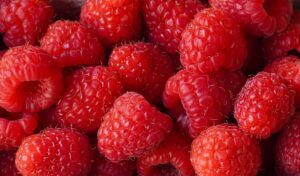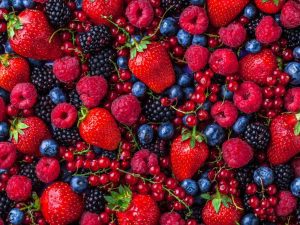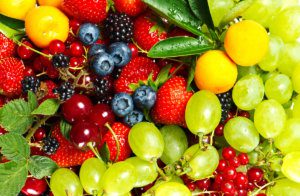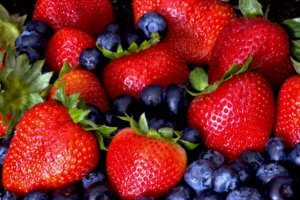
According to Serbian Economist, Ukrainian berry producers and processors conducted a technological business tour to Serbia in December 2025, where they studied practices of growing and industrial freezing of berries, primarily raspberries, according to the Berry Growers Association of Ukraine (BGAU).
The trip was organized by the association with the support of the SIPPO program in Ukraine. Five Ukrainian companies and representatives of the association took part in the tour, visiting Serbian berry growing and freezing enterprises and familiarizing themselves with the cold processing chain – from small refrigerators to facilities capable of freezing up to 30% of the national raspberry harvest.
The UBA noted that despite competition between Ukraine and Serbia on the global raspberry market, the Serbian side demonstrated a willingness to share practical experience and technological solutions. The second day of the visit was devoted to professional training at the Institute of Horticulture in Čačak.
Serbian experience also revealed a number of problems that are also characteristic of Ukraine: the industry’s dependence on manual harvesting, labor shortages, and pressure from weather factors. In Serbia, almost all raspberries are harvested by hand, and the average wage for harvesters in the 2025 season was around €50 per day; small farms with an average area of about 0.1 hectares remain the main suppliers of raw materials for processing.
Context: the role of Serbia and Ukraine in raspberries and exports
Serbia maintains its position as the largest exporter of frozen raspberries and related berry crops in world trade: in 2024, it became the top exporter for commodity item HS 081120 (frozen raspberries, blackberries, etc.) – $313.2 million and 99.0 thousand tons. In 2024, Ukraine ranked 4th among exporters under the same heading – $115.4 million and 61.3 thousand tons.
The main destinations for Ukraine’s exports under HS 081120 in 2024 were Poland and Germany (followed by the Czech Republic, France, and Italy), reflecting the orientation of Ukrainian frozen products towards the EU market and the processing chains of Central Europe.

In 2020, Ukraine exported fruit and berry products worth $238 million, which is 8% less than a year earlier, and is associated with quarantine restrictions and complication of customs procedures at the borders, the Ukrainian Agricultural Export Association (UAEA) reported on Friday.
According to the association, 92% of total exports were frozen fruits and berries ($111 million), walnuts in shell and without shell ($ 98 million), as well as apples and pears ($10 million).
According to the association, in kind, the export of walnuts decreased 41.2%, to 39,000 tonnes, and apples and pears – 64.3%, to 19,000 tonnes, at the same time, the export of frozen fruits was the maximum for the period of independence of Ukraine reaching 55,000 tonnes.
The UAEA reported that sales of Ukrainian fruits, berries and nuts to the EU countries in 2020 provided 77% of the total revenue from these products. Most of these products were bought by Poland ($57.7 million), France ($19.7 million), Germany ($17.2 million), the Netherlands ($11.6 million), Italy ($11.5 million), Austria ($11.2 million), the Czech Republic ($9.6 million) and Greece ($9.5 million). Turkey ($10.5 million) and Belarus ($9.2 million) are other major trading partners.
The association said that the average price of Ukrainian apples in 2020 grew by 1.5 times, to $500 per tonne, frozen fruits and berries – by 13.6%, to $2,023 per tonne, and shelled walnuts – by 5.1%, to $3,000 per tonne.

The government support for building berry refrigerators by agricultural cooperatives is ineffective and will not be effective without a permit to compensate the cost of imported equipment, Head of the Ukrsadvinprom nongovernmental organization Volodymyr Pechko has said.
He said that the initiative of the Agricultural Policy and Food Ministry to permit compensations for imported refrigerators for agricultural cooperatives would not improve the situation with refrigerators, as cooperatives are not peculiar for this sector.
“To use the program, producers should unite in a cooperative, and this is very complicated. People cannot agree on whose territory a refrigerator is built,” he told Interfax-Ukraine.
As reported, Ukraine’s Agricultural Policy and Food Ministry plans to permit compensations to agricultural cooperatives for purchase of refrigerators for berries and fruits. The Cabinet of Ministers will consider the appropriate changes in the rules of using funds on government support to the agricultural and industrial complex in the near future.
Earlier, Ukrsadvinprom called on the Agricultural Policy and Food Ministry of Ukraine to adapt the state-funded program compensating expenses on construction of fruit refrigerators to berry farms. The criterion of the capacity of this equipment for compensation from the national budget from 500 tonnes, as provided for by the current government decree, should be relaxed to 50-100 tonnes, they said.

Ukraine’s Verkhovna Rada has passed an amendment to the Tax Code, according to which the excise duty on fruit and berry wines is reduced to UAH 0.01 per liter, Head of the Ukrsadvynprom association Volodymyr Pechko has said. “The Verkhovna Rada reduced the excise duty on fruit and berry wines and equated it to the excise duty on grape wines. Previously, it was equated with liquor and vodka products. This industry was dilapidated when there was ‘draconian’ legislation. And now the conditions are optimal to resume production of fruit and berry wines,” he told Interfax-Ukraine.
According to a comparative table, the tax rate on non-sparkling wines with 1.2-15% ABV will be UAH 0.01 per liter.
According to the head of Ukrsadvynprom, the parliament also agreed on changes, according to which, new producers of wine products will be considered the fourth group of taxpayers using the simplified taxation system.
As reported, the Cabinet of Ministers has increased government support for hop growing, laying of young gardens, vineyards and berries, from UAH 300 million in 2018 to UAH 400 million in 2019.

Ukraine in January-September 2018 exported fruits and berries in the amount of $157 million, which is 40% more compared to the same period last year. According to the Ukrsadprom association, the main products in this group were walnuts, which were delivered for $69 million, frozen fruits and berries worth $61 million, apples and pears for $10 million.
“The growth in exports of walnuts (from 13,000 tonnes in the first nine months of 2017 to 20,000 tonnes in the same period of the current year), apples and pears (from 9,000 tonnes to 29,000 tonnes respectively) was the most notable in natural terms,” according to the website of the association.
The main sales market remained the European Union, supplies to which bring about two-thirds of all foreign exchange earnings. In January-September 2018 the largest purchases of fruits were made by Poland ($32.3 million), France ($11.7 million), Belarus ($10.9 million), Turkey ($10.6 million), the Netherlands ($8.8 million), Germany ($7.4 million), and Italy ($7.2 million).
“If not to take into account imports of exotic fruits to Ukraine (mainly citrus fruits and bananas), for the three quarters of 2018 the surplus of foreign trade in fruits and berries reached $75 million,” the association said.
Ukrainian apples are exported to more than 50 countries, while they are mainly purchased by Belarus (43%), Moldova (20%), and Sweden (10%).

Ukraine in the first half of 2018 exported fruit and berries worth $100 million, which is 59% more than in the same period of 2017. According to the Ukrsadprom association, the main products in the structure of exports remain walnuts worth $64 million, frozen berries for $23 million, apples and pears for $8 million. “Compared with last year, the volume of walnut exports increased from 12,000 to 19,000 tonnes, apples and pears from 6,000 to 24,000 tonnes, while the deliveries of frozen berries decreased slightly from 17,000 to 14,000 tonnes,” the report says.
The main buyers of Ukrainian gardening products, according to the association, are the countries of the European Union, which account for more than 60% of the value of exports.
“In the six months, the largest fruit supplies in monetary terms from Ukraine were made to Poland for $11.2 million, France for $9.9 million, Turkey for $9.3 million, Belarus for $8 million, Germany for $5.1 million, Greece for $5 million and the Netherlands for $4.7 million,” the report says.
As noted, Ukrainian apples are mostly delivered to Belarus (46% of the value of supplies), Moldova (21%), and Sweden (10%).
BELARUS, BERRY, EXPORT, FRANCE, FRUIT, GERMANY, POLAND, TURKEY